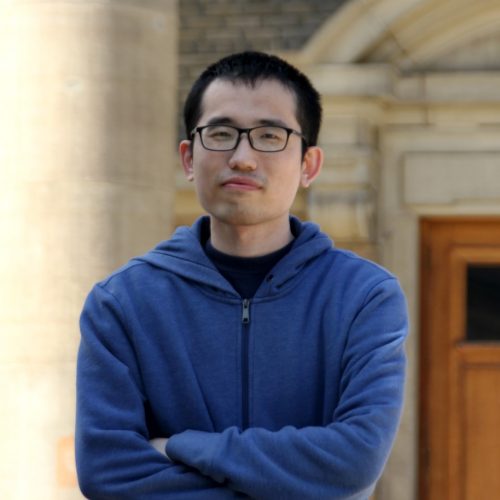Mingyang Wei

Mingyang Wei
PhD '20, Department of Electrical and Computer Engineering
“I find the whole process of discovering things and exploring things very exciting. It gives me a sense of satisfaction, like I am doing something creative. ”
Mingyang Wei has always wanted his work to have a positive social impact. As an undergraduate student in Physics at Peking University, he was inspired to pursue a socially conscious path when the 2014 Nobel Prize for Physics went to the three scientists who had invented the energy-efficient blue LED. He recalls thinking that something as small as the LED could change the whole world, and that he wanted to do something that would make a difference.
The recent PhD graduate is certainly well on his way, having won the 2020-2021 Governor General’s Gold Medal at U of T for his work on next-generation solar cells, a crucial technology in efforts to address climate change. But Wei remains humble about his academic success. “I’ve applied for awards in the past and not gotten them, so I wasn’t expecting to receive it at all,” he says, laughing. “It’s a great honour. I’d like to thank everyone involved in the process.”
At the University of Toronto, Wei’s research focused on the development of tandem solar cells made out of metal halide perovskites, a next-generation material that can convert sunlight into electricity without needing the area required by silicon solar panels. Under the supervision of Professor Ted Sargent, Wei developed a semi-transparent solar cell that looks like glass and can be incorporated into modern-day building facades.
Wei says he has learned a lot from his mentor, who received a JJ Berry Smith Award for Doctoral Supervision last year. “Ted’s a very friendly person, and very encouraging,” says Wei, who decided to apply to U of T after a phone conversation with his future supervisor. (Where his friends put in 15 or more graduate school applications, Wei was so sure he wanted to work in Sargent’s group that he only applied to the University of Toronto.) “He’s a very busy person, but he’s always reachable,” he continues. “When you have a problem or a ask a question, he always tries to respond immediately.”
In September, Wei will embark on a two-year Marie Sklodowksa Curie postdoctoral fellowship in Switzerland at École polytechnique fédérale de Lausanne, where he will continue his work on developing large-area perovskite cells. The avid researcher is looking forward to it. “I find the whole process of discovering things and exploring things very exciting,” says Wei. “It gives me a sense of satisfaction, like I am doing something creative.”
